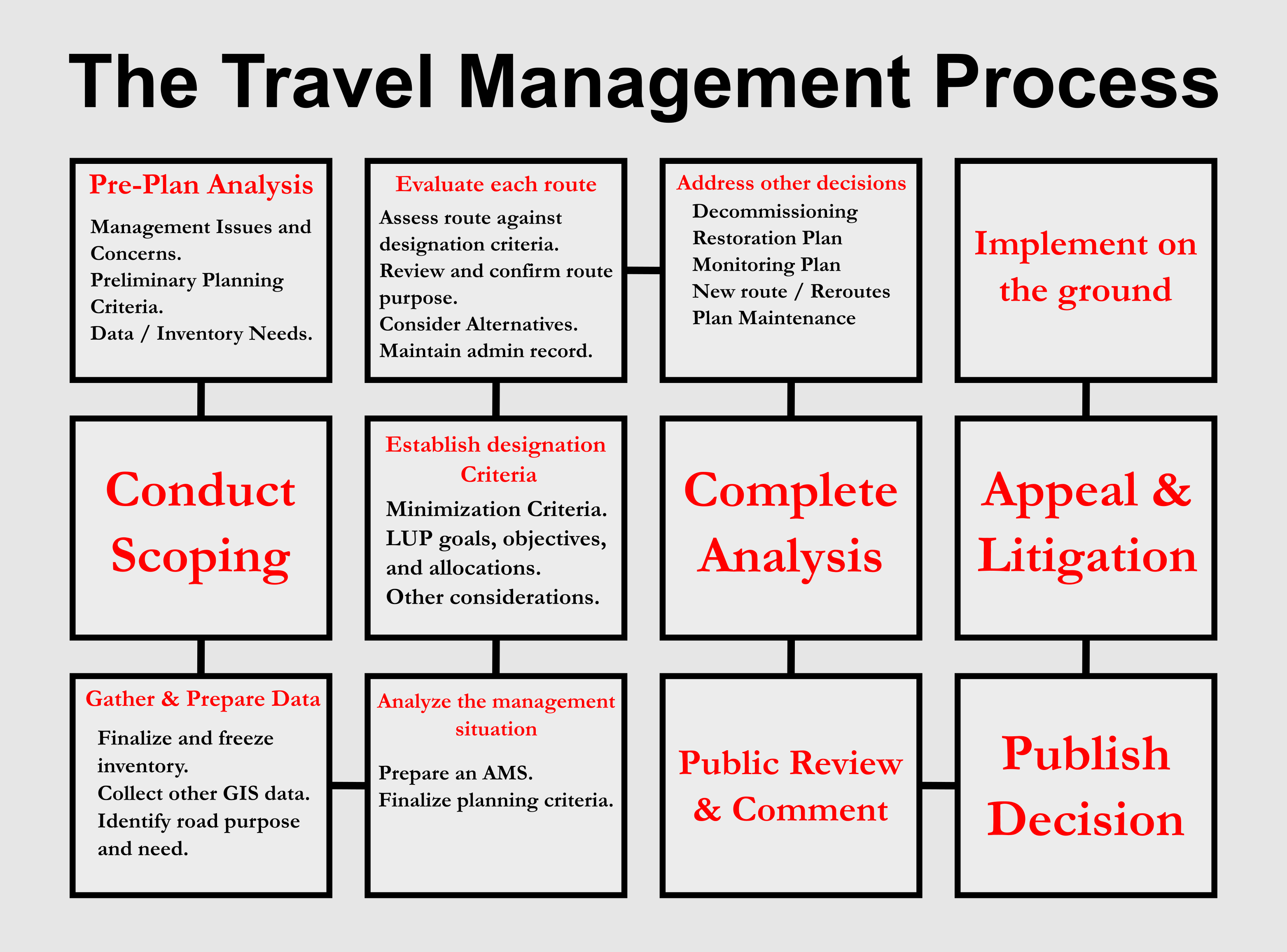The Biden Administration is finalizing numerous management plans that have been in development since the early to mid-2000s. These plans have been repeatedly delayed over the past 20 years thanks to the efforts of numerous motorized use activists across the United States. Now, from Oregon to Arizona and California to Montana, the 4x4 community is losing thousands of miles of Roads that previous generations fought to keep. Except this time it's different.

A good portion of our community recognizes and fundamentally disagrees with multiple issues facing the 4x4 community. Dumped trash, driving off the trail, trespassing on private property, reckless driving on busy trails, vandalism, and Theft are issues that convince 4x4 users that closure and heavy regulations are necessary.
If somebody takes that stance on an issue, I can't really blame them. I enjoy visiting our public lands for the beauty, the history, the wildlife, and all of God's creations. A challenging Trail and a good campsite are just complementary. But we must recognize that these issues are inevitable.
This narrative aligns with traditional Land Management procedures applicable in the not-too-distant past. However, today, Land Management agencies have fundamentally shifted their goals away from an activity-based approach to management in favor of a conservationist approach with blanket regulations on all public lands.
Traditionally, federal land management agencies, such as the Bureau of Land Management (BLM) and the U.S. Forest Service, often focused on managing public lands based on specific activities, needs, and local conditions. They would establish rules and regulations for specific areas based on resource concerns and user demands.
It worked like this: If Sycamore Canyon was being abused, Sycamore Canyon got shut down. If Crown King Trail was being abused, then Crown King Trail would be shut down. If Seven Springs Campground was being abused, then Seven Springs Campground would be shut down.
Inherently, this put 4x4 clubs and organizations in a position to collaborate with federal land managers to educate users on proper trail etiquette in order to legitimately save access and use. Their efforts strongly applied to the local Ranger districts, individual trails, or individual areas. Our organized groups were able to satisfy federal land managers by maintaining roads, running educational programs, restoring historical sites, and promoting responsible use.
Now, federal agencies take a conservationist approach to land management, particularly in the context of roads, which demands a set of specific goals that prioritize the protection of natural resources and ecosystems. These goals, through the travel management process, are aimed at minimizing the environmental impact of roads based on agency goals and desired outcomes.
Activity-Based Approach: In an activity-based approach, land management decisions may be more decentralized and tailored to specific activities and local conditions. Regional Foresters or field-level managers may have greater control and flexibility in managing roads based on the needs of various user groups and activities. They can adjust road management strategies to accommodate different types of activities such as timber harvesting, recreation, and wildlife management.
Conservationist Approach: In a conservationist approach, the focus is on protecting and preserving natural resources. This approach often involves more centralized and stringent regulations to minimize the environmental impact of roads. Decisions may be made at higher administrative levels with a stronger emphasis on resource protection and less flexibility for accommodating various activities.
Unfortunately, a majority of our clubs and organizations have failed to recognize this distinctive shift in Federal Land Management policy under the travel management rules. Many organizations and individuals within the community still believe that closures are happening because or stewardship and improper etiquette. They have failed to realize that Regional and local Ranger districts have their hands tied by a centralized regulatory structure that has opposing Land Management objectives in favor of conservation.
The prioritization of conservation has set aside fundamental land use and property rights held by individuals and sovereign states. It has overshadowed the responsibility of states, in favor of placing fictitious authority on powerless federal agencies. It has also created significant unintended consequences by tying the hands of regional Foresters and denying them the ability to address specific concerns.
To remedy this, our community must recognize that not all aspects of public land management (especially roads and the operation of motor vehicles) are the responsibility of federal agencies. Most of the issues we face are the responsibility of State and County entities. This fact is not only recognized by decades of court precedent, federal law, and regulations, but it also directly aligns with Constitutional limitations on federal jurisdictional powers that establish sovereign states. By placing the governance of the various issues we face on the federal government, we are essentially justifying the subversion of the Constitution by federal agencies who oppose our interests and our agenda driven.
Once you understand this, you will start to see a whole another side of travel management planning and public Land Management. You will see how a majority of our local clubs and organizations have been absent while previous state Administrations have forfeited Arizona's sovereignty to the federal government. You will see the incentives to Forfeit these aspects of public Land Management in exchange for federal Highway funding. Then you will start to realize why nearly every single state politician claims that these issues are federal issues.
But this is not by accident. Since the creation of the Department of interior 200 years ago, the federal government has consistently worked to centralize Land Management in the name of making government more efficient. Centralized power demands the ignorance and exclusion of states and therefore we the people. Centralized power was never the intention of our founding fathers and is entirely contradictory to a constitutional system of government.